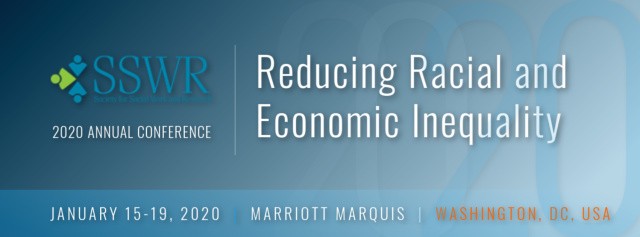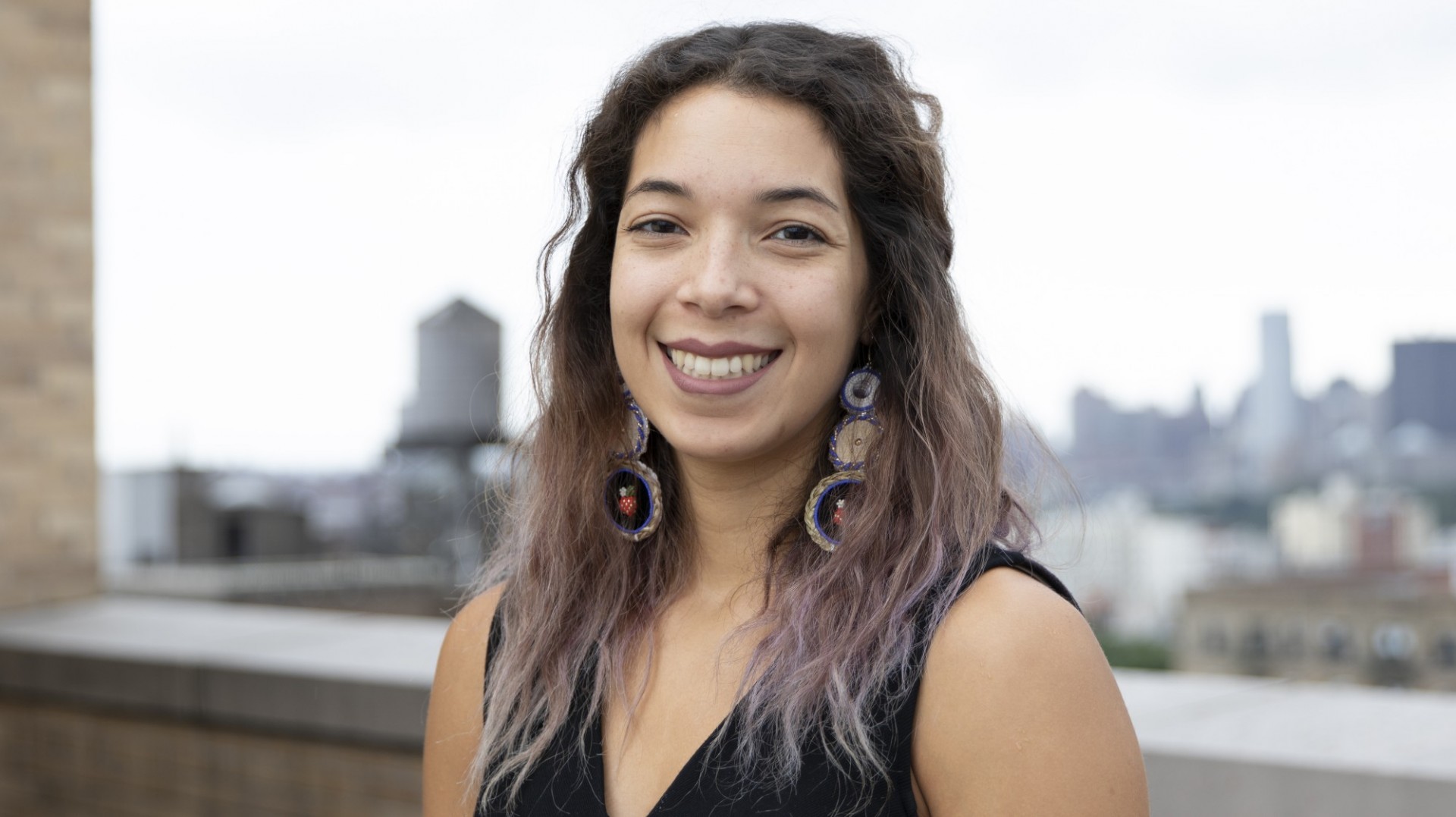Society for Social Work and Research Annual Conference
Members of the SIG team will be presenting at the annual Society for Social Work and Research Conference: Reducing Racial and Economic Inequality.
Jennifer Hartman will be presenting research in a poster session.
Friday, January 17, 2020: 9:15 AM - 11:45AM
(Marriott Marquis Washington DC)
Associations between Perceived Discrimination and Poverty as Post-Migration Living Difficulties among Syrian Refugee Women in Non-Camp Settings in Jordan
The ASPIRE team behind the research is: Jennifer M. K. Hartmann (Presenting), Trena Mukherjee, Dr. Anindita Dasgupta, Dr. Maysa’ Khadra, Dr. Neeraj Kaushal, and Dr. Nabila El-Bassel.
Dr. Brandy Henry will present in two sessions:
Friday, January 17, 2020: 3:00 PM
Marquis BR Salon 12, ML 2 (Marriott Marquis Washington DC)
Adversity & Mental Health/Substance Use Disorders As Predictors and Moderators of Rule Violations in US Prisons
This study examines relationships between adverse experiences, mental health/substance use disorders and rule violations during incarceration. Rule violations during incarceration are behaviors by incarcerated people which are considered against the rules. They can be benign, such as having more than the allowed number of blankets, or more serious, for example, an assault. Given that previous research has linked rule violations with recidivism, this is an important issue to address. The role of mental health and substance use disorders in contributing to rule violations has been examined in just a few studies. These studies have found that some specific disorders can contribute to rule violations. However, more nuanced analysis is needed to understand the role that adverse experiences may also play.
Sunday, January 19, 2020, from 9:45 AM to 11:15 AM
Marquis BR Salon 6 (ML 2) (Marriott Marquis Washington DC)
Typologies of Child Abuse & Neglect As Determinants of Mental Health & Substance Use Disorders of People Incarcerated in US Prisons
Previous research documents how child abuse and other adverse experiences can impact the development of mental health and substance use disorders, in addition to contributing to crime and incarceration. Incarcerated people also have disproportionately high rates of exposure to adverse experiences and diagnoses for these disorders. This study identifies typologies of adverse experiences among people incarcerated in US prisons. Typologies of adversity are then used to predict mental health and substance use disorders. The impact of gender, race and ethnicity on adversity typology are also examined.
Yong Gun "YG" Lee will be presenting a session.
Sunday, January 19, 2020: 11:30 AM-1:00 PM
Independence BR H, ML 4 (Marriott Marquis Washington DC)
Who Receives HIV Testing? Exploring HIV Testing and Correlates Among Men Who Have Sex with Men in Kazakhstan
Ariel Richer will present a poster session, sharing a qualitative analysis from interviews with the women who participated in EWORTH.
Friday, January 17, 2020: 5:30 - 7:00 PM
Session: ePoster Presentations VII; Session ID #: 11216
Abstract Title: Unpacking Barriers to Accessing Services Among Black Women on Probation Who Use Drugs
Background and Purpose:
Prior research suggests several multi-level, structural, community-level and organizational factors may serve as barriers to accessing services (and service agencies among Black women, women who use drugs, and women with criminal justice involvement. Hypothesized barriers include medical mistrust, lack of health literacy, lack of cultural competency in services, experiences of stigma and discrimination associated with racism, drug use and incarceration. Yet to date, there have been few studies that elucidate the barriers for the large and growing number of Black drug-involved women in community corrections who are grapple with these intersecting stigmatized identities. This qualitative study aims to fill this gap by examining the experiences of Black women in community corrections who report using illicit drugs and/or binge drinking.
Methods:
In depth structured interviews were conducted with 45 women who identify as Black, are mandated to community corrections (probation, parole or an ATI program), and report using illicit drug or binge drinking in the past 90 days. Participants were women who participated in a randomized controlled trial testing effectiveness of E-WORTH an Afrocentric HIV prevention intervention for Black women in community corrections. Interviews elicited participant’s service needs and experience and interaction with service providers, as well as their experience of using service linkage tool of E-WORTH. Interviews were transcribed verbatim and coded thematically by two MSW level research assistants using NVivo qualitative data analysis software.
Findings:
The mean age of women was 31.5 (sd=11.06), 62% had less than a HS diploma, 44% were unemployed, 68% diagnosed with depression, 24.4% had been homeless in the past 90 days, and 29% did not have enough money to purchase food in past 90 days, and 71% received state/gov food assistance. Thematic analysis reveals that participants expressed primary needs around housing, employment, and education. Participants conveyed multiple experiences of feeling stigma due to drug use and criminal justice involvement were discussed, as well as participant experiences of racism from and mistrust of their health care provider. However, participants responded positively to the service linkage tool that was part of the intervention, with some being linked to services due to the tool., Some participants reported an increased prioritization of their personal health accompanied by an increase in willingness to go to medical professionals due to their involvement in EWORTH. Participants described a sense of “sisterhood” and “vibing” (strong social cohesion) within the Afro-centric EWORTH intervention.
Conclusion and Implications:
Study participants described a need for a variety of services, as well as barriers to access such as stigma and mistrust of providers that aligns with current research literature. Findings suggest that culturally-specific interventions like EWORTH can increase linkage to much needed services and address the intersection of stigma that Black women who use drugs and are involved with the criminal justice system encounter.





